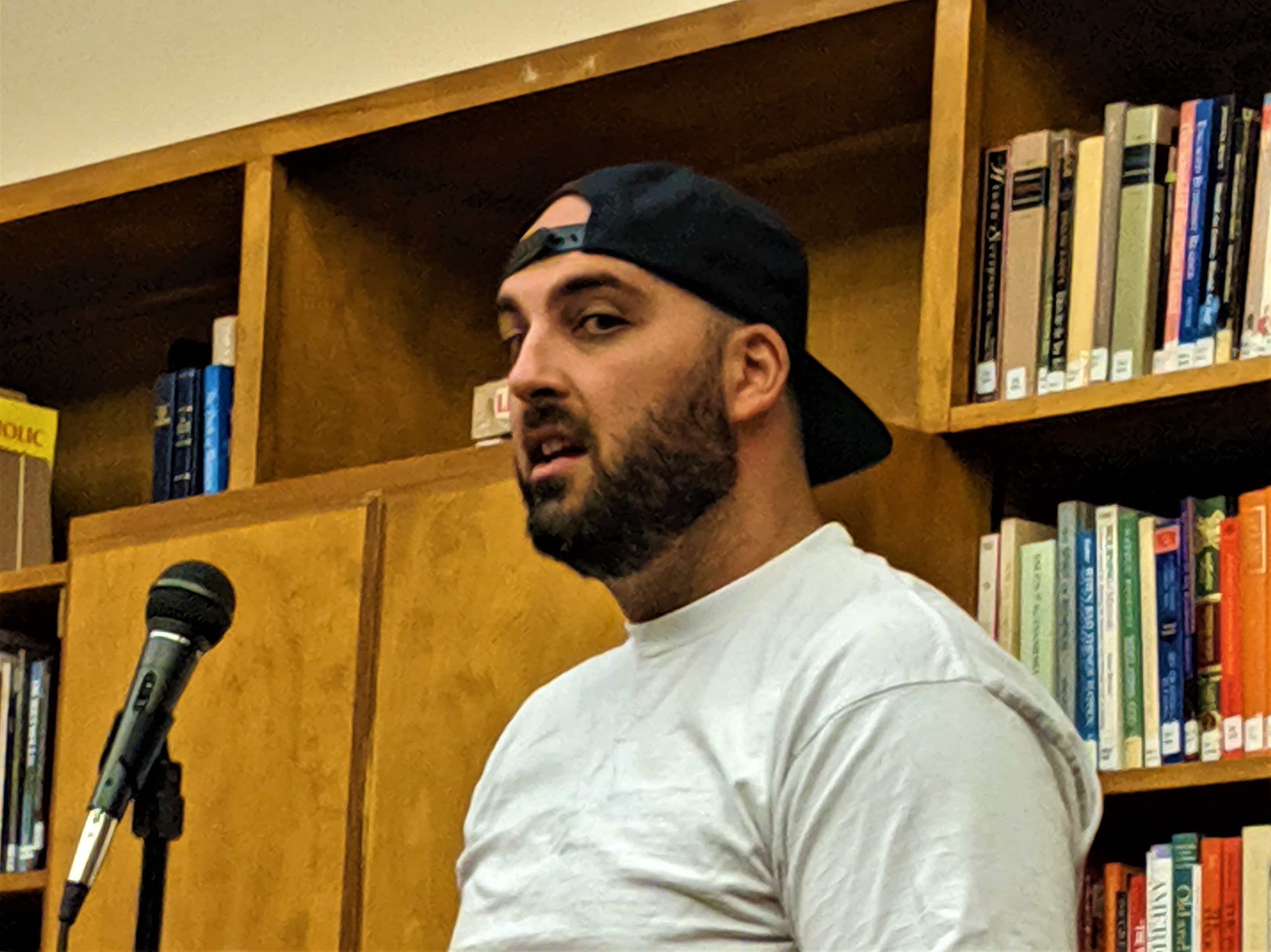ISSN: 1941-4137
POETRY THAT ENACTS THE ARTISTIC AND CREATIVE PURITY OF GLASS
POETRY THAT ENACTS THE ARTISTIC AND CREATIVE PURITY OF GLASS

Tamer Said Mostafa (pronouns: he/him/his), a radical social worker by day and poet by night, is an always-proud Stockton, California native whose work has appeared in over twenty various journals and magazines such as Confrontation, Zone 3, and Freezeray among others. His chapbook, Which Way Will the Water Drag Our Bodies? was released in Spring, 2020 and is available through Monday Night Press. He is a graduate of the Creative Writing program at University of California, Davis where he won the Lois Ann Lattin Rosenberg Contest for Poetry. As an Arab-American Muslim, he experiences life through spirituality, community work, and the music of Bone Thugs-n-Harmony.
Also by Tamer Sa’id Mostafa:
Which Way Will the Water Drag Our Bodies?
Two Poems
Poem At Ten
Where Will I Find America?
I Haven’t Been Keeping up on Pluto Much These Days
— at the El Dorado County Community Observatory
It happens that looking directly
through a reflector becomes a tragedy
once the constellations are unsettled on a night
the air is fresh with pine heaped from the foothills.
We praise the light years in the back of a sky theater
with our heads resting on the concrete
while the guides speak of the millennia to come.
They say the earth is like a spinning top
maintaining its momentum, only for so long
before it forfeits inertia and recalibrates direction
to another distance.
I commemorate a moment in Mexico weeks earlier
when I felt the axis wobble
like a little jolt peeled the atmosphere from its reel
and suspended the tides too reluctant to pull the land’s threads
under their revolving onyx.
Everything is nothing, but cyclical.
I admit then, it is not new for me to hear them say
Pluto is now a dwarf planet in the metaphor
of star fields, rewriting itself to keep us guessing
what variant will arrive next.
But we can look at Saturn’s rings in the meantime
tug their particles into submission
and Jupiter’s Europa and Ganymede
overlapping the other’s mirage
above the elevation’s forgiveness.
All we’re left to wonder is Andromeda
as ominous as the city’s penumbra below
bulging from the farmland.
Such mercilessness rousing our memories
to ignore the gravity.
This poem was written to deconstruct time amidst the neoliberal control we subconsciously experience. The speaker centering themselves within the universe’s grandeur was meant to illustrate the anxiety of our existence when compared to the discursive, natural world. Yet, the sequence of spiritual inquiry juxtaposed against some sort of belonging, is its own truth.
Glass: A Journal of Poetry is published monthly by Glass Poetry Press.
All contents © the author.
All contents © the author.





